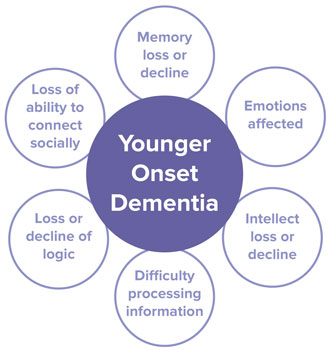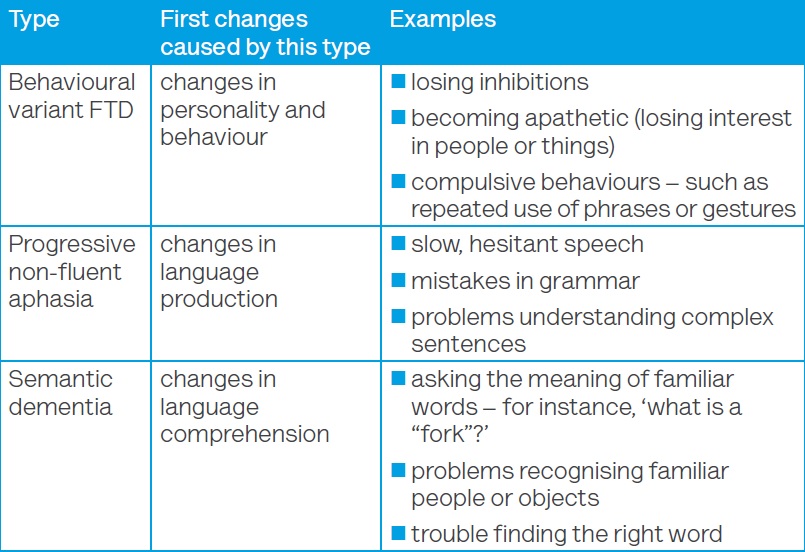10 Warning Signs That Point to Vascular Dementia
Wiki Article
Comprehending the Impact of Mental Deterioration on Daily Life and Caregiving
Mental deterioration affects everyday life in extensive means, impacting not just those identified yet also their caretakers. As cognitive decrease progresses, you might observe adjustments in interaction and routine that challenge both celebrations.The Phases of Mental Deterioration and Their Effects on Life
As you browse the trip of mental deterioration, recognizing its phases can significantly influence just how you manage every day life. Dementia usually advances with 3 primary stages: early, center, and late. In the very early phase, you could see periodic memory gaps or trouble discovering the ideal words. This can bring about aggravation, but recognizing these signs early helps you adapt your routine and seek support.Throughout the middle stage, you'll experience extra recognizable cognitive decrease. Daily tasks might become challenging, and keeping your freedom may require changes. Using pointers and simplifying your setting can aid.
In the late stage, individuals usually require significant assistance with day-to-day activities. Preparation for treatment ends up being important, focusing on convenience and lifestyle. By understanding these stages, you're better outfitted to respond proactively, guaranteeing you or your liked one can navigate the obstacles with dignity and poise.

Adjustments in Communication and Social Communication
How do changes in interaction impact your daily communications as mental deterioration advances? As dementia breakthroughs, you could observe that easy conversations come to be difficult.You may locate it simpler to connect with these means rather than depending solely on talked language. Listening abilities can likewise change; you could discover it more difficult to follow discussions or remember what was simply stated (Frontotemporal Dementia). This can bring about misunderstandings or sensations of isolation
Motivating perseverance and creating an encouraging environment can assist. Taking part in tasks that foster connection, like songs or art, can improve social communications. Remember, preserving connections is still feasible; it's practically adapting to brand-new ways of interacting.
Influence On Daily Routines and Activities
While maneuvering everyday regimens, you'll likely see that jobs you once completed effortlessly become much more difficult as mental deterioration proceeds. Simple activities like cooking, clothing, or also bathing might call for even more effort and time. You might find yourself failing to remember action in familiar regimens or struggling to recall where you placed items. This can result in irritation not simply for you, yet additionally for those around you.Preparation your day can feel overwhelming, making it more difficult to stay with a routine. You may need suggestions for consultations or to take medicines. Adapting your environment can aid; for example, identifying products or using lists can streamline tasks. Taking part in repetitive, organized tasks can also provide convenience and a feeling of achievement. Remember, it's all right to request assistance. Surrounding on your own with encouraging good friends or household can make managing these adjustments a bit easier.
Psychological and Behavioral Obstacles
Steering via daily regimens can produce not just useful obstacles, however behavioral and likewise psychological ones. You might see modifications in state of mind, such as enhanced anxiousness or disappointment, which can stem from confusion or trouble in completing tasks. As you browse these moments, it is crucial to identify that your loved one may share their sensations through habits like agitation or withdrawal.These emotional feedbacks can be unpredictable and might occur without caution, leaving you both sensation bewildered. You might discover that acquainted environments or regimens can aid decrease stress and anxiety, yet maintaining patience becomes considerable. It is crucial to verify their feelings, even if you don't completely understand them.
The Function of Caregivers in Sustaining People With Mental Deterioration
As a caregiver, you play a vital duty in offering psychological assistance for individuals with dementia. Establishing daily care regimens can create a feeling of stability and convenience, helping to ease their anxiety. By comprehending their requirements and utilizing effective techniques, you can considerably improve their lifestyle.Psychological Support Techniques
When taking care of someone with dementia, understanding the emotional landscape is important for offering effective support. You'll often locate that perseverance and compassion go a long method. Verify their feelings; if they share complication or stress, recognize it without rejecting their emotions. Straightforward motions, like holding their hand or keeping eye get in touch with, can produce a complacency. Attempt to take part in activities that they enjoy, as this can trigger delight and connection. Bear in mind to connect clearly and gradually, utilizing a calm tone. Urge expression with music or art, which can offer as a powerful electrical outlet. Inevitably, don't neglect to look after your own psychological needs; looking for support for on your own can improve your ability to look after them.Daily Care Routines
Establishing day-to-day treatment routines is crucial for giving security and convenience to individuals with dementia, as these regimens can help in reducing complication and anxiety. You can start by detailing a constant schedule for meals, activities, and remainder. This predictability aids your loved one feel a lot more safe and secure and engaged.
Incorporate acquainted tasks, like folding washing or watering plants, which can stimulate favorable memories and foster a sense of achievement. Usage visual hints, such as checklists or schedules, to lead them via the day.
Be flexible, though; adapt routines as needed based on their mood or power degrees. Early Onset Dementia. Bear in mind, your perseverance and understanding are vital in maneuvering their changing requirements, ensuring they really feel supported and valued throughout their daily life
Creating a Safe and Comfortable Living Environment
Producing a risk-free and comfortable living environment is vital for people with dementia. You'll want to make home security adjustments that decrease dangers and guarantee experience to supply a sense of comfort. By focusing on these aspects, you can aid develop a room that sustains both security and wellness.Home Security Adjustments
As you navigate the challenges of mental deterioration, making home safety and security adjustments can considerably improve comfort and safety and security. Start by removing tripping threats like carpets and clutter, assuring sidewalks are clear. Set up grab bars in bathrooms and non-slip floor coverings in the shower to avoid falls. Consider making use of brighter illumination and night lights to boost exposure, especially throughout nighttime. Tag important locations, such as the shower room and kitchen area, with clear indicators to assist with orientation. Safeguard any type of sharp objects or poisonous compounds unreachable. Furthermore, assess your home's locks and alarm systems to validate they're easy to use and provide satisfaction. These modifications not just promote security but also urge independence, allowing your liked one to feel even more secure in their setting.Comfort and Experience
After making certain a safe environment with needed alterations, fostering comfort and familiarity is essential for individuals with dementia. Begin by individualizing their space. Usage familiar colors, designs, and photos that stimulate satisfied memories. A preferred blanket or chair can supply a feeling of security. Maintain a consistent routine to help them really feel grounded and decrease stress and anxiety. Basic, acquainted dishes can likewise produce a soothing ambience. Maintain paths clutter-free and clear to stay clear of complication. Include soft lights, as intense lights can be disorienting. Take into consideration including comforting aromas, like lavender, to advertise leisure. Involving in familiar activities, such as listening to music or horticulture, can boost their feeling of belonging, making their living atmosphere a true sanctuary.Vascular Dementia
Approaches for Reliable Caregiving and Support
While steering the obstacles of dementia care can really feel frustrating, executing reliable methods can significantly improve both the caretaker's and the client's day-to-day experience. Begin by establishing a routine; predictability helps minimize anxiety for both you and your liked one. Use clear, basic interaction-- straight inquiries and short sentences can stop confusion.
Don't neglect to deal with yourself; schedule breaks and link with support system. Sharing experiences with others in comparable scenarios can supply important insights and psychological relief.
Lastly, continue to be individual and versatile. Dementia can bring uncertain modifications, so adapting your strategy is necessary. By utilizing these strategies, you can cultivate a much more favorable atmosphere that benefits both you and your enjoyed one.
Often Asked Questions

What Are the Various Sorts Of Dementia?
You'll discover numerous types of mental deterioration, consisting of Alzheimer's, vascular mental deterioration, Lewy body mental deterioration, and frontotemporal dementia. Each type affects memory and cognitive function differently, so understanding the differences is necessary for appropriate diagnosis and care.How Can I Aid A Person With Early-Stage Mental Deterioration?
You can help someone with early-stage mental deterioration by holding your horses, supplying assistance, and motivating them to participate in tasks they take pleasure in. Keeping routines regular and preserving open communication can additionally make a substantial distinction in their daily life.Exist Financial Resources Available for Mental Deterioration Treatment?
Yes, there are funds available for mental deterioration treatment. You can explore entitlement program programs, nonprofit organizations, and insurance policy choices. It's additionally smart to speak with neighborhood companies for specific sources customized to your situation.What Lawful Considerations Should Caregivers Be Mindful Of?
As a caregiver, you need to think about power of lawyer, healthcare proxies, and guardianship regulations. It's vital to understand the lawful rights and obligations you hold, guaranteeing your liked one obtains suitable treatment and protection.Exactly How Can I Deal With Caregiver Stress And Anxiety?
You can manage caretaker stress by focusing on self-care, looking for support from close friends or groups, setting sensible assumptions, taking breaks, and practicing leisure strategies. Remember, your wellness matters equally as much as the person you're taking care of.Recognizing the Impact of Dementia on Daily Life and Caregiving.
As you browse the trip of mental deterioration, understanding its stages can substantially impact exactly how you handle day-to-day life.While steering daily routines, you'll likely discover that jobs you when completed easily ended up being a lot more tough as mental deterioration progresses.Establishing day-to-day treatment regimens is essential for offering stability and comfort to individuals with mental deterioration, as these regimens can assist lower complication and anxiousness.While navigating the obstacles of mental deterioration treatment can really feel frustrating, applying reliable approaches can greatly improve both the caregiver's and the patient's daily experience.
Report this wiki page